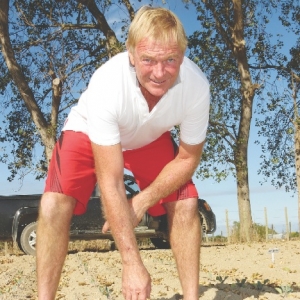MANY SHEEP and beef farmers will need to arrange bank help to carry them through the drought, says Professor Keith Woodford, Lincoln University.
Woodford, professor of farm management and agribusiness, expects lambing percentages will be right down next season as a result of the drought.
“We’ve known for long time three things are really important to lambing percentage: one is genetics and there’s no doubt we have better genetics; second is the live weight of ewes at mating; third is whether the ewes are on a rising plain of nutrition.
“So if the ewe is gaining live weight at the time she’s mated then she’s much more likely to give a multiple ovulation. I can’t put numbers on it at this stage…. I would expect the lambing percentage in August-September to be down quite a lot. Having said that, the rams aren’t there yet and a lot depends on what happens over the next month.”
Looking at our sheepmeat markets, Woodford says if wasn’t for China, New Zealand would be in a mess. The Kiwi dollar’s strength against the Euro and the pound sterling is impacting farms, depressing returns to New Zealand farmers from European markets.
“[But the] sheepmeat market in China has been growing incredibly rapidly, more due to good luck than good management on our part; it’s not demand we’ve created, it’s a demand the Chinese have created.”
Woodford says China by volume is now our biggest market for lamb – a market for cuts once a bit difficult to sell.











